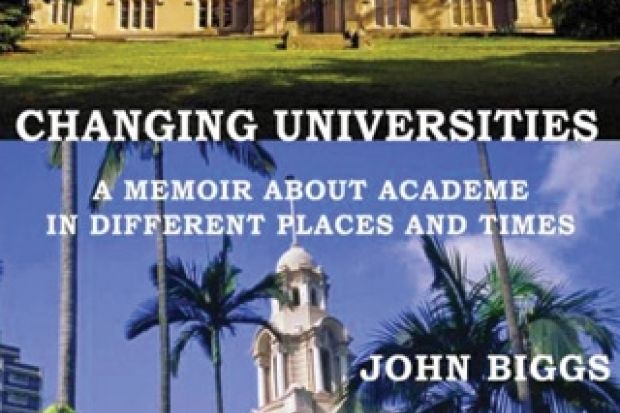Alan Gregory, adjunct professor in the Faculty of Education, Monash University, is reading John Biggs’ Changing Universities: A Memoir about Academe in Different Places and Times (Strictly Literary, 2013). “A fascinating and readable account of the significant changes in universities wrought by the new managerial corporate style, with a loss of many of those features academics have prized as the key aspects of university life. Biggs enriches this account with his own personal story, which he tells vividly and frankly. I could not put it down. I found it first class.”

Peter Hill, associate professor of fine art at RMIT University, is reading Wolfgang Zumdick’s Death Keeps Me Awake: Joseph Beuys and Rudolph Steiner, Foundations of Their Thought (Spurbuchverlag, 2013). “A beautiful translation by Shelley Sacks of this iconoclastic 1995 work, with chapter headings ranging from Beuys’ manifesto-statement ‘I hereby resign from art’ to ‘A day in the life of Brahma’. Beuys and Steiner were famous for their blackboard drawings; some are reproduced here, as is Beuys’ wonderful suitcase-as-artwork, incorporating Kant’s Critique of Pure Reason within its lid. Ideal bedtime reading if you want to be kept awake.”

E. Stina Lyon, professor emeritus of educational development in sociology, London South Bank University, is reading Barnaby Martin’s Hanging Man: The Arrest of Ai Weiwei (Faber, 2013). “Martin’s heart-stopping, luminous book puts arguments over a recent funeral ‘in perspective’, to quote the title of Ai Weiwei’s finger ‘salute’ to Tiananmen Square. It contains a history of the Chinese Communist Party and its abuse of artists; a biography of Ai and finally Ai’s remarkable portrait of totalitarian detention, itself a work of art. Please read.”

R.C. Richardson, emeritus professor of history, University of Winchester, has been reading Richard J. Evans’ Cosmopolitan Islanders: British Historians and the European Continent (Cambridge University Press, 2009). “This contentiously titled book blends - not altogether seamlessly - a historiographical survey of past Europeanists in this country with the results of a survey of present-day practitioners about their entry into European history specialisms and their impressive standing in the historical communities of the European mainland. It seems questionable whether such a record can be sustained given the dramatic decline in the study of languages in the UK.”

Paul White, pro vice-chancellor for learning and teaching, University of Sheffield, is rereading Tom Reid’s The United States of Europe: The New Superpower and the End of American Supremacy (Penguin, 2005). “Reid was explaining to a US audience how the European Union was becoming a global superpower, highlighting changes such as monetary union and the launch of the euro, as well as the success of European welfare models. He foresaw Europe threatening US economic interests through a rapid process of integration and growing self-confidence. It is sobering to reflect on more recent developments.”
